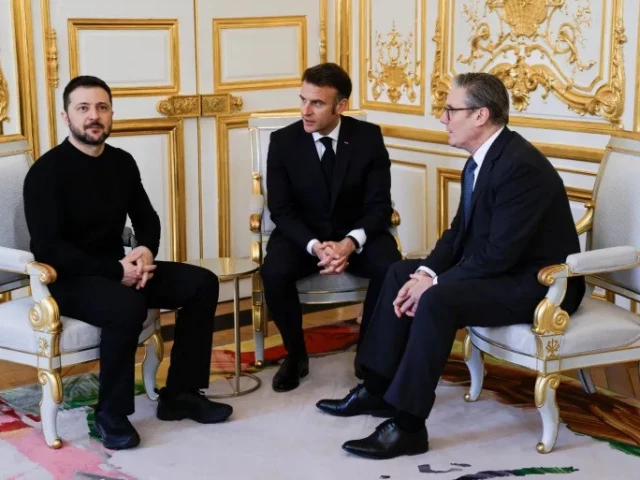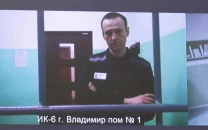Macron pushes for European deterrence force in Ukraine
France and UK to lead “reassurance force” as some allies resist ground involvement; Macron commits €2b in military aid

French President Emmanuel Macron said Thursday that not all of Ukraine’s European allies are on board with the proposed deployment of troops to the country as part of a broader effort to bolster Kyiv’s position in ongoing peace efforts with Russia.
Speaking after a summit in Paris attended by nearly 30 European leaders as well as NATO and EU officials, Macron acknowledged that while consensus was lacking, unity wasn’t essential for progress. “We do not need unanimity to achieve it,” he said.
France and the United Kingdom are spearheading a proposed “reassurance force” aimed at deterring further Russian aggression. Macron emphasized the force would not serve as peacekeepers or frontline troops, nor would it replace Ukraine’s own military.
Instead, the mission would help prepare for a stable, post-conflict security environment. Talks are set to begin between London and Paris on the potential deployment zones and scope of the mission.
However, several nations pushed back against the idea of any troop presence. Italian Prime Minister Giorgia Meloni said there were “no plans for national participation in a possible military force on the ground.” Czech Prime Minister Petr Fiala echoed that sentiment, calling troop deployment “premature” until a ceasefire framework is in place.
Macron stressed that some countries either lacked the “capacity” or were politically reluctant to join the initiative. Nonetheless, the Franco-British group would move forward, co-piloting what he called a “coalition of action for stable and durable peace.”
The summit comes at a pivotal time in the three-year war, with fresh diplomatic efforts underway and mounting pressure—especially from US President Donald Trump—for a negotiated ceasefire. Macron also pledged a further €2 billion ($2.16 billion) in military aid, including missiles, warplanes, and air defense systems. Ukrainian President Volodymyr Zelenskyy noted that more aid announcements were expected.
Meanwhile, Russia has slammed the peacekeeping initiative as a veiled military intervention. Foreign Ministry spokeswoman Maria Zakharova warned of the risk of direct conflict between NATO and Moscow.
The summit followed US-brokered talks over a proposed Black Sea ceasefire. Moscow’s conditions included the removal of sanctions on Russian agricultural bank Rosselkhozbank and its reconnection to the SWIFT payment system—demands the EU has rejected unless Russia withdraws from Ukrainian territory.
UK Prime Minister Keir Starmer warned that easing sanctions too soon would be a strategic mistake. “Russia is playing games—we have to be absolutely clear about that,” he said.
Zelenskyy, in turn, urged the West to stand firm, accusing Russian President Vladimir Putin of attempting to fracture European and American unity. He condemned what he called “dangerous signals” regarding potential sanctions relief and highlighted ongoing Russian attacks, including a deadly strike in Kherson that knocked out power for tens of thousands.
Moscow also claimed Ukraine had hit energy targets in the Bryansk region and Crimea, escalating tit-for-tat strikes even amid talk of de-escalation.



















COMMENTS
Comments are moderated and generally will be posted if they are on-topic and not abusive.
For more information, please see our Comments FAQ